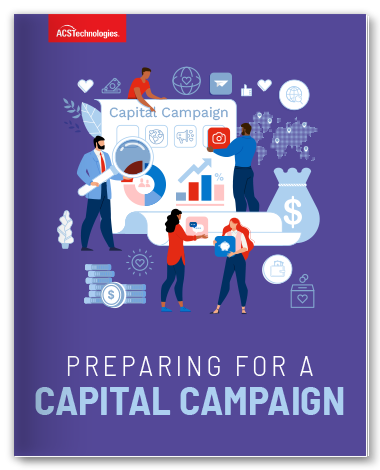Creating an Effective Capital Campaign – Part 2
A capital campaign for an organization is often many months, if not years, in the planning. It should be no different for our churches. A church should never enter into a campaign lightly and without a significant amount of planning and preparation. This blog helps you prepare your church for your next campaign.
We’re focusing on capital campaigns in this blog series, walking through steps churches can take that will help ensure they are successful. Today, we’re looking specifically at key ways to prepare our congregations for a campaign.
1. Align the goals of the project with the vision of the church.
This is a critical step and needs to happen early. Many times, the project emanates from a key or pressing need. It’s often the solution to a problem your congregation has agreed they want to solve to move your church into the future. This could be a building addition or renovation, a new piece of equipment or vehicle, or a new ministry or program.
The church and board leadership need to spend significant time doing the background research needed to show what issue this project solves and how it ties directly to the church’s mission. If the congregation can’t align on that, any campaign efforts will be an uphill battle that drains important focus and energy away from the church’s core ministries. Don’t invest heavily in building designs and renderings. For example, until your church can truly articulate the facility needs in the context of the vision.
Be very careful that you’ve discerned if this project. Is it truly emanating from your mission? And is what is needed not just now but potentially five or 10 years from now? We often see organizations and churches get fixated on a “shiny new object” they must have, and it doesn’t fit with the church’s vision long-term. This is why many months of intentional conversations with members in pre-planning are so important in determining the project’s viability and scope in the life of your congregation.
2. Carve out time over the course of three or four Sundays to talk about the vision.
Look for opportunities in your service to spend 5 minutes or so on video vignettes. Share the background and data for how this project could further your mission and vision. This series of intentional education over a month or so will help members better understand the opportunity. And how to think about their own giving. The series also helps set the expectation for the campaign.
3. Invite your members to share their passion.
It’s critical that your congregation hear from people who can speak to the project’s need. And how it advances your church’s work. They need to hear from givers about their stories and why they intend to give to this important milestone campaign. Look for a cross-section of members to champion the project and their personal commitment to it via your worship services, videos, and web/newsletters. This helps prepare your members to consider their own role and their own giving as the campaign launches.
There are many other ways to help prepare your church. The more focused time you spend on research and prep. The more equipped your board, lay leaders, and key givers will be to help you launch something successful.
In the next blog of this series, we’ll focus on how to implement the silent phase of your campaign.
PREPARING FOR A CAPITAL CAMPAIGN
Capital campaigns fail. Avoid the common mistakes and ensure your church’s campaign success by preparing adequately.
This article provides the phases and tools you’ll need to fully prepare your church staff, key volunteers, and donors for all that a campaign will entail. Discover the key steps you’ll need to undertake to ensure your church is well-positioned to launch a campaign that will meet its goal.
Tim has over 30 years of experience in Church, Non-Profit Administration, Management, and Fund Development. Serving as an Executive Pastor and Chief Development Officer in growing Churches and Non-Profit Organizations, he has provided a wide range of expertise and resources. Tim serves as Founder and CEO of Non-Profit DNA. A boutique firm committed to helping nonprofits and churches. By building their capacity through fundraising, leadership, team building, staff recruiting, and coaching.





